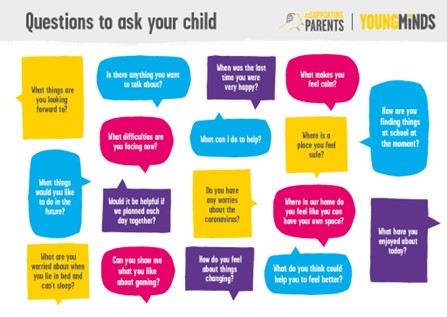-
"Give reassurance, listen and make them feel safe."
-
"It can depend, read and know your child. Be flexible with them and work with them."
-
"It is not your fault."
-
"Build a connection and talk to them."
-
"Listen to them, don't compare your experiences to theirs."
-
"Provide reassurance - everything will be okay."
-
"Talk to them. You need to understand and show interest in finding out what is going on behind their behaviour."
Validation – Parents / Carers
Our families have told us that learning about validation can be a game changer in terms of building understanding, trust, and emotional connection.
It involves acknowledging and accepting another person’s thoughts and feelings as valid and understandable. Adults can sometimes move too swiftly to problem solving.
Spending time demonstrating that you “get it” helps the young person feel valued, understood, and respected. This is a skill that can be practised and developed.
Useful Resources - Parents / Carers
NHS This May Help - How to help your child through the teenage years
NHS This May Help - A parent’s guide to understanding teenagers
Anna Freud – Parent/Carer tips for talking to their child
Anna Freud – Parent/Carer tips for talking to a young person at secondary school
Useful Resources - Children and Young People, Peer-To-Peer
Helping Someone Else – Anna Freud National Centre for Children and Families
Mental Health Foundation
Young Minds – Supporting a Friend / How to Talk to a Friend
Further support Parents/Carers
The following have top tips regarding successful communication with young people:
-
MindfulTeen
-
Family Lives
-
Unicef
-
NHS
-
Young Minds
-
Voices of Youth
-
This May Help
-
Mind – Friends and Family
-
Mind – Helping Someone Seek Help
-
Mind – Making Yourself Heard
-
This May Help – Supporting your Child
-
Family Lives – Spending Time with Your Teen
-
Family Lives – The Importance of Communicating with your Teenager




